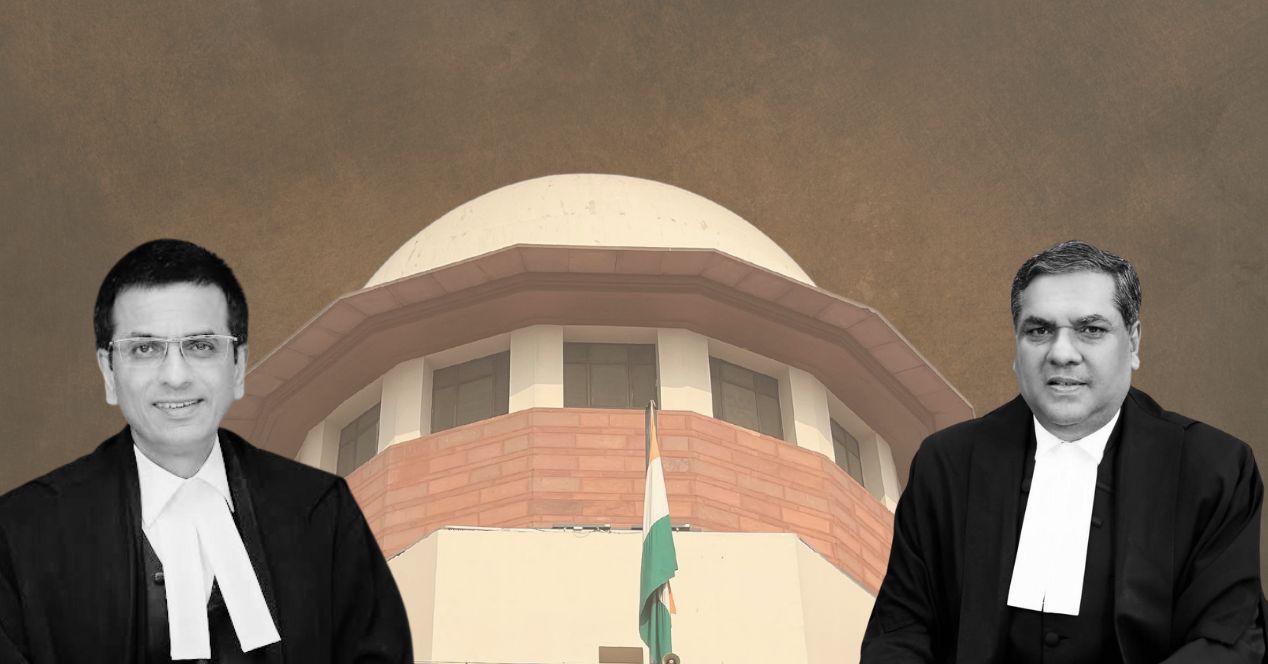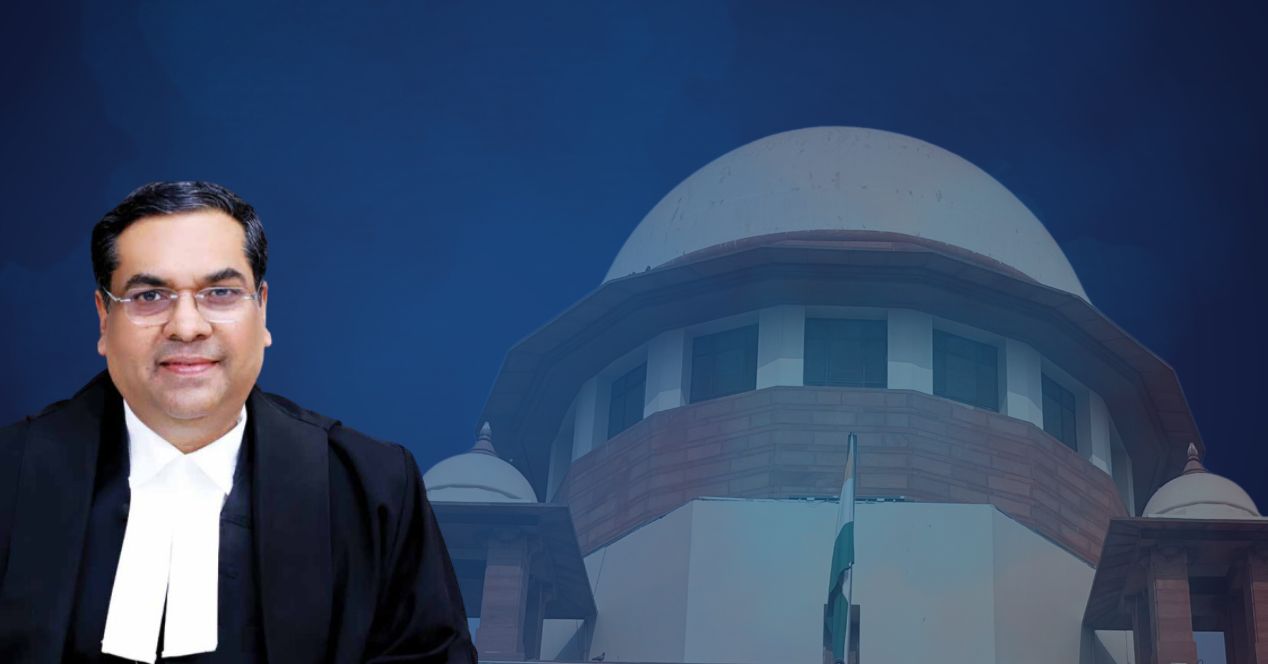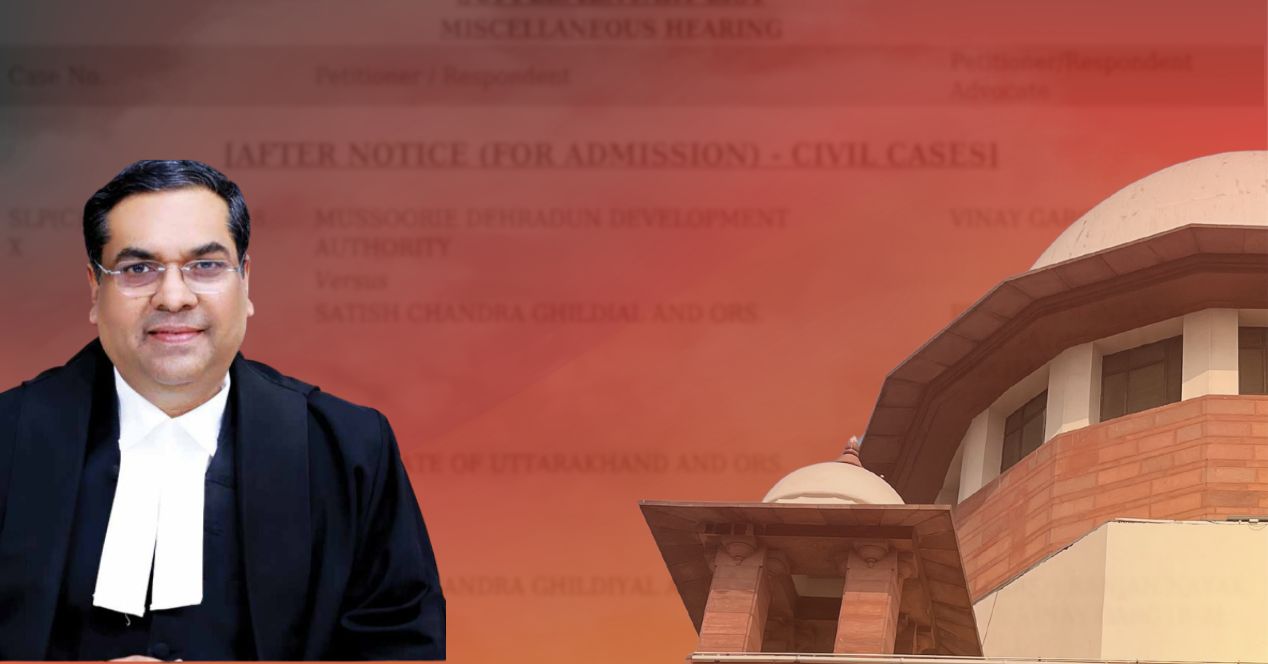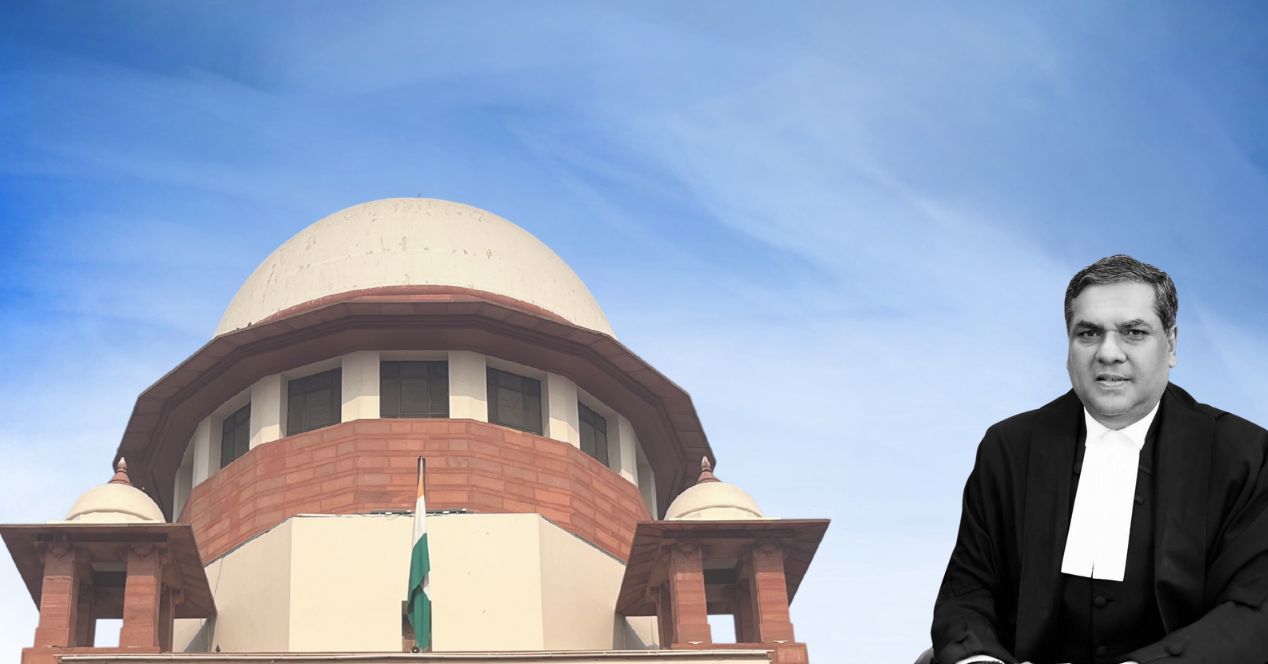Analysis
The top 10 judgements of Justice Sanjiv Khanna
We list 10 key judgements that Chief Justice Khanna was part of during his time in the top court
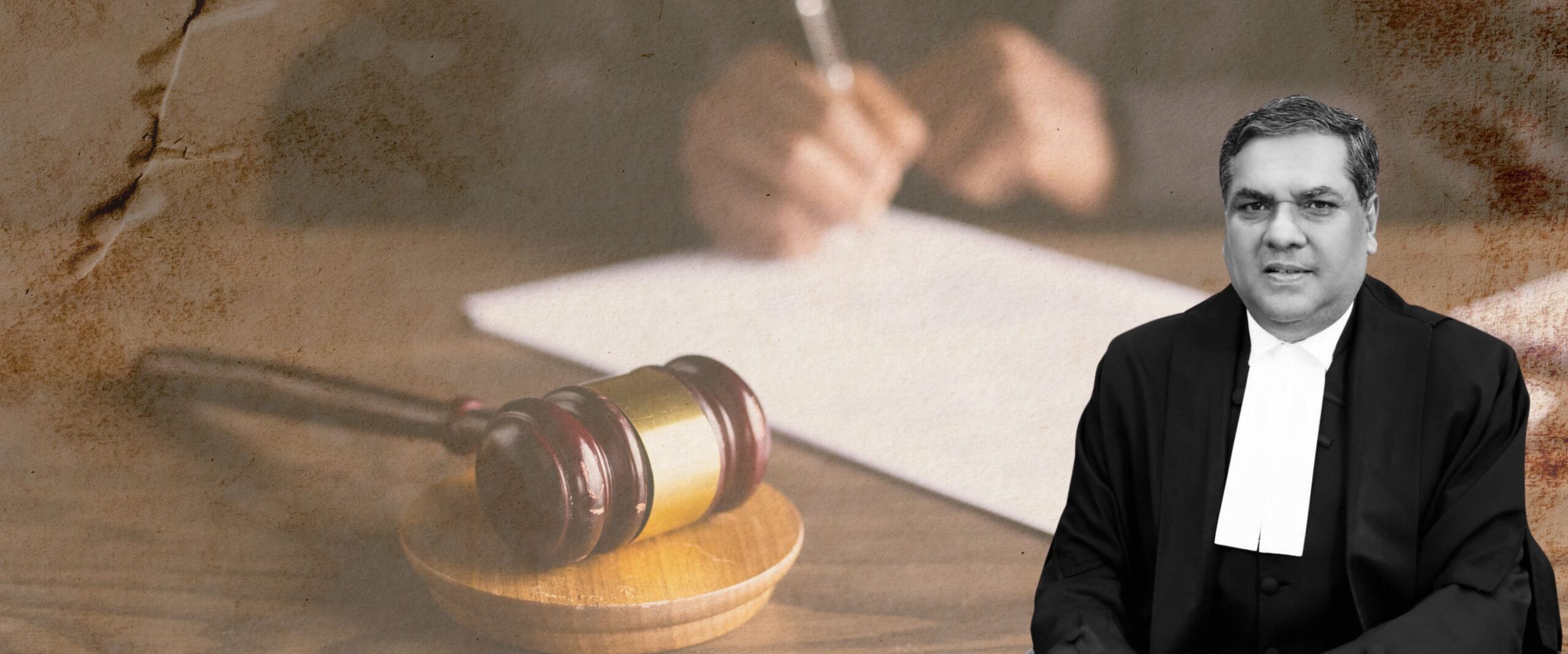
As the curtains draw on Chief Justice Sanjiv Khanna’s time in the Supreme Court, we’ve selected 10 key judgements from the 480-plus benches he has been part of in the top court. Nine of these decisions are from his time as a puisne judge and one from his brief six-month tenure as Chief Justice. All of the decisions featured in the list below feature a written opinion by Justice Khanna—either on behalf of the majority, in concurrence or in dissent.
We’ve tried to include a mix of judgements. These include those that touched upon issues of public importance (Electoral Bonds Scheme, Central Vista), moved the needle on an aspect of private law (modification of arbitral awards and setting arbitrator fees) or otherwise made Page 1 headlines (RTI and judicial independence, Arvind Kejriwal’s bail).
1. RTI and Judicial Independence | Five-judge Bench
Central Public Information Officer, Supreme Court of India v Subhash Chandra Agarwal
On 14 November 2019, a five-judge Constitution Bench held that RTI disclosure requests to the Supreme Court must be decided on a case-on-case basis. It grounded its decision in the fact that the need for judicial independence is not at odds with the need for transparency.
This case stemmed from an order by the Central Information Commissioner to the Supreme Court, asking it to disclose correspondence between the Collegium and the government regarding the appointment of three Supreme Court judges. The Bench, while deciding on the scope of applicability of the Right to Information Act to the top court, found that the Chief Public Information Officer or ‘competent authority’ (the Chief Justice of India) must exercise their discretion to decide whether a disclosure is in the larger public interest. Justice Khanna authored the majority opinion which was signed by all judges.
2. Constitutionality of the Electoral Bond Scheme | Five-judge Bench
Association for Democratic Reforms v Union of India
On 15 February 2024, a Constitution Bench unanimously struck down the Union’s 2018 Electoral Bond Scheme, declaring that it violated voters’ constitutional right to information. Petitioners had argued that the Scheme allowed for increased corporate funding, black money circulation and corruption in the form of quid-pro-quos. The Union contended that the Scheme was designed to guarantee the right to privacy of the donors, who could otherwise be exposed to retribution from rival parties.
The Court held that voters have a right to information about political candidates and their source of funding as it empowers them to cast their vote effectively. Justice Khanna concurred with the decision but deployed different reasoning. He ruled that amendment to Section 182 of the Companies Act, which allowed unlimited donations, was unconstitutional based on the test of proportionality (meaning the harm to voters’ right to information was too great compared to the benefit of donor privacy). He believed this standard inherently showed the amendment was “manifestly arbitrary”, and thus “subsumed” the test applied by the majority.
3. VVPATs for Voter Verification | Two-judge Bench
Association for Democratic Reforms v Election Commission of India
On 26 April 2024, the Supreme Court unanimously rejected petitions seeking 100 percent verification through the Voter Verified Paper Audit Trail system (VVPATs) to cross-check votes cast through Electronic Voting Machines (EVMs).
The VVPAT system was introduced in 2013 to ensure electoral transparency. A Bench led by Justice Khanna dismissed the petitions demanding 100 percent cross-verification of all VVPAT slips with EVM votes, emphasising existing safeguards implemented by the Election Commission of India to ensure free and fair elections. The Judgement also referred to the logistical challenges and potential for human error associated with counting all VVPAT slips.
4. Abrogation of Article 370 | Five-judge Bench
In Re: Article 370 of the Constitution
On 11 December 2023, the Supreme Court upheld the constitutionality of the Union’s abrogation of Article 370 which removed the special status granted to Jammu and Kashmir.
The Court reasoned that the provision was a temporary measure meant to ensure J&K’s integration into India. In a short opinion (3 pages), Justice Khanna concurred with the majority that Article 370 was a transitional provision and that its abrogation did not negate the federal structure.
He further concurred with CJI D.Y. Chandrachud’s opinion on the power of the President under Article 356 and with his observations regarding the restoration of statehood to J&K. Justice Khanna stressed that the “conversion of a State into Union Territory has grave consequences” and has to be “justified by giving very strong or cogent grounds.”
5. Divorce under Article 142 | Five-judge Bench
Shilpa Sailesh v Varun Sreenivasan
On 1 May 2023, the Supreme Court held that it has the power to grant divorce on grounds of ‘irretrievable breakdown of marriage’, even if the parties approached it directly and not in appeal against a lower court decision.
The Court categorised this power as flowing from Article 142, which allows it to pass any order to “do complete justice.” Justice Khanna, authoring the majority opinion, read down a number of precedents which had held that there had to be a ‘fault’ component for the Court to grant divorce (and which was codified in the Hindu Marriage Act). The Judgement found that the power to do ‘complete justice’ is “not fettered by the doctrine of fault and blame.”
6. Revising Fee Scale for Arbitrators | Three-judge Bench
Oil and Natural Gas Corporation v Afcons Gunanusa JV
On 30 August 2022, a three-judge Bench of the Supreme Court held that arbitrators cannot decide their fees unilaterally. Their decision was grounded in the idea of paramountcy of party autonomy in the arbitration process.
A Special Bench consisting of Justices D.Y. Chandrachud, Sanjiv Khanna, and Surya Kant was constituted to review the pay scale under the Arbitration Act. Justice Khanna wrote the dissenting opinion. He disagreed with the majority’s conclusion that the arbitral tribunal cannot fix its own fees in the absence of an agreement or court order.
Further, he found that “sum in dispute” would mean “the aggregate of all the amounts in dispute without any bifurcation” between claim and counterclaim, expressing concern that if they were to be treated separately, the rules framed by several High Courts would have to be redrawn.
7. Arvind Kejriwal’s Bail | Two-judge Bench
Arvind Kejriwal vs Directorate Of Enforcement
On 12 July 2024, the Supreme Court granted interim bail to then Delhi Chief Minister Arvind Kejriwal, who was arrested by the Enforcement Directorate (ED) for alleged corruption and money laundering in connection with a liquor policy scam.
While Justice Khanna’s judgment did not address the legality of Prevention of Money Laundering Act (PMLA) charges, it raised crucial questions on the legality of arrest under Section 19 of the Act. He referred to a larger bench the issue of whether “need and necessity” should be a required ground for arrest. Additionally, he clarified that “mere interrogation” is insufficient for arrest under this section.
8. Regulating Hate Speech | Two-judge Bench
On 7 December 2020, the Supreme Court decided a writ petition filed by journalist Amish Devgan regarding multiple First Information Reports (FIRs) lodged against him for comments he had made criticising the Sufi saint Khwaja Moinuddin Chishti.
Devgan contended that the FIRs should be quashed on the grounds that his statements did not constitute hate speech under provision of the Indian Penal Code. The Supreme Court declined to quash the FIRs. The majority opinion authored by Justice Khanna emphasised the importance of allowing the investigative process to proceed to determine the context, intent and impact of his remarks.
9. Central Vista Redevelopment Project | Three-judge Bench
On 5 January 2021, the Court granted clearance to the Central Vista redevelopment project and the construction of a new building to house the Parliament.
Justice Khanna dissented on the ground that due process has not been followed in obtaining permissions for the project. Justice Khanna identified several lacunae in the process, including the failure of “independent application of mind” in a meeting regarding the change of land use, a lack of reasonable time in the public consultation process and the absence of prior approval from the Heritage Conservation Committee.
10. Court’s Power to Modify an Arbitral Award | Five-judge bench
Gayatri Balasamy v ISG Novasoft Technologies Limited
On 30 April 2025, a five-judge Constitution Bench, in a 4:1 majority, held that courts have a limited power to modify an arbitral award under Sections 34 of the Arbitration Act.
The majority decision, authored by Justice Khanna, held that the larger power to set aside an award under Section 34 necessarily subsumes the smaller power to vary or modify a judgement. The majority further held that a court can grant or modify post-award interest. It also found that the Supreme Court can use Article 142 to modify awards, as long as it does so with caution and does not alter the award on merits.

